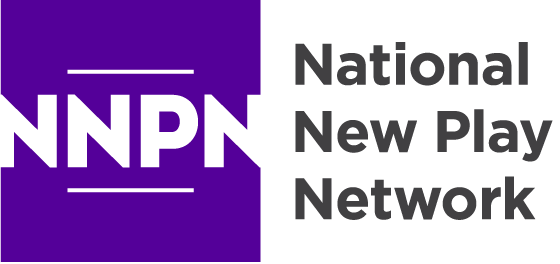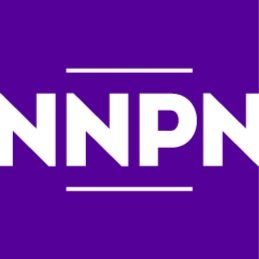Notes for the Field: On The Care & Feeding of Freelance Artists in the American Theatre
Pictured: A stone post in a lush forest, with a gilded sign with “Yaddo” in gold letters, and a green background. Photo courtesy of Kareem Fahmy.
Between 1880 and 1909, the author Katrina Trask suffered a number of tragedies. All four of her children perished before the age of twelve. Her husband, the financier Spencer Trask, died in a horrendous train accident. The stock market crash of 1907 threatened to wipe out her fortune. The resilient Katrina managed to weather these storms and retain her 400-acre estate in Saratoga Springs, New York that she called Yaddo (rhymes with “shadow”). Left without heirs, she chose to leave her wealth, her land and her 50-room mansion as an artists’ retreat in perpetuity.
I write this as I gaze out of the window of my beautiful accommodations at Yaddo, where I have been a “guest” (all the artists here are called guests) this summer. The sounds of the nearby racetrack sometimes cascade over the property (I lost $20 there last week). It’s one of the most creatively inspiring places I’ve ever been to. The list of luminaries that have wandered these densely wooded grounds over the 121 years that Yaddo has hosted artists is enough to make your head spin: Truman Capote, John Cheever, Sylvia Plath, Carson McCullers, James Baldwin, Patricia Highsmith. The list goes on (and on).
Pictured: A lush green forest, with the sunlight beaming through between the trees. Photo courtesy of Kareem Fahmy.
Pictured: brown wooden letters stating "Yaddo", with an assortment of Princess Diana books strewn below. Photo courtesy of Kareem Fahmy
I’ve spent 19 blissful days here (7 more to go) working on my newest play, a two-hander entitled Dodi & Diana. A commission from NYC-based theatre company Colt Coeur, the play centers on a married couple—an Egyptian-American actress and her Canadian investment banker husband —who travel to Paris for the 25th anniversary of the crash that killed Princess Diana and her paramour Dodi Fayed. It’s a play about commitment, love, and erasure. It asks if, within a marriage, one is able to retain individuality or gets subsumed into a new whole. I’m fascinated by how Dodi Fayed, whose life ended on August 31st, 1997, his broken body draped around that of the beloved Princess of Wales, is now a footnote in history. Diana, of course, we remember. ‘
Pictured: Yaddo artists grouped together in community and playing games. Photo courtesy of Kareem Fahmy
I’ve never enjoyed writing a play more. And that’s despite its somber undertones, the spectre of death looming over it. The play makes me laugh and smile and cry. Yaddo has seeped into the play, the joy of the place, but also the rigor, the sense that my fellow artists are all reaching for something lofty and supporting one another in that journey. There is no requirement to produce or share work at Yaddo— artists could spend their days doing absolutely nothing if they choose—the only thing asked of us is to dine together each evening. My fellow guests are wonderful, ranging in age from 20s to 80s, from all over the country and the world. There are poets and painters, sculptors and filmmakers, novelists and essayists. We talk about our craft, about what we’ve read and worked on that day, but also about silly things: reality television, celebrity gossip. We spend most evenings drinking, laughing, playing games (Mafia is a favorite, also Boggle). And then we go to bed so we can get up the next day and work.
I’ve never been on a theatre residency or retreat where I’ve felt as well cared for as I do here at Yaddo.
The many months of pandemic-forced “reflection time” has crystallized for me a painful truth that I could never truly grapple with in the endless freelance hustle that had been my reality for a decade and a half: I’ve devoted most of my adult life to a field that has thus far been unable to sustain me financially or artistically. I have a “career” but I am not “making a living.” I work in this industry but I am not afforded the basic protections and security that workers in many other fields get: a living wage, tolerable working hours and conditions, health care (there’s that word again). During the pandemic I was diagnosed with a rare, incurable, but thankfully treatable joint disease. I now identify as a person with a mild disability. Without decent health insurance for the rest of my life, I would be unable to afford the insanely expensive medication I have to take daily to treat my illness. What does a freelance artist do in that situation? Where do they find that care that they require?
I have an MFA but do not wish to pursue academia. I’ve flirted with opportunities in artistic leadership but have pulled back. I recently completed a yearlong TCG fellowship called “Rising Leaders of Color.” In all honesty, I finished the program more lost about leadership than I began, asking myself: “What exactly is the next generation of leaders of color rising to?” If the heart of these opportunities to lead ask us to succeed departing ADs who have either left the theatre in disarray, marred by scandal, or simply reeling with uncertainty about post- pandemic re-emergence, do I really want to plunge into those unforgiving waters?
I came to this country back in 2003 with dreams of becoming a working artist. More than anything, I want to be creating work for the stage. That’s what gets me out of bed every day.
So I continue freelancing... I have come to define myself as a true “hyphenate.” I’m a director and I’m a playwright, and now that I’ve begun a 7-month television writing fellowship, I’m adding another hyphen (- screenwriter).
Pictured: a virtual reading of A DISTINCT SOCIETY. Photo courtesy of Kareem Fahmy
I feel the most optimistic about my playwriting career. My play A Distinct Society has been a breakthrough for me, garnering me workshops at nine different theatres. The play I wrote during the pandemic, American Fast, which is set in the world of NCAA basketball, was given a finishing commission by Artists Repertory Theatre, received a NYFA grant, and will be getting workshops throughout the 21-22 season. The Artists Rep commission was my first as a playwright, and was quickly followed by the one for Dodi & Diana. “Is this playwriting really happening for me?” I keep asking. Artistically, maybe yes. People seem to like the work: “You write good dialogue.” “Your characters really pop.” “You’re a writer who really knows what he’s writing about.” The generosity with which my playwriting has been met has been gratifying for me. I feel like I’m making a real contribution to the future of the American theatre. Am I making enough money to survive on playwriting alone, however? Heck no. Why do you think I wrote a TV pilot? A writer at the entry-level of the TV industry can make more money in a year than most playwrights can make in a decade. Plus in TV there’s a ladder to climb. TV writers are given a prescribed path to follow: staff writers can move up the ranks to become producers and showrunners if they put in the years of commitment. There’s no such clarity for playwrights.
And that brings me to freelance directing. Despite earning my MFA at Columbia in 2006 and the string of prestigious fellowships and career development opportunities that followed, I am not even close to being able to sustain myself as a director. And the reality of the director’s life is even more challenging than a playwright’s. As a writer, I have PDFs to send out. People read them. I get some traction. People often say to me: “In reading your plays, I really got to know something about you.” But what’s to be done as a director? The long-standing obstacles that have prevented directors from getting work don’t seem to be shifting:
“I need to see your work.”
“We have directors on staff so don't have many slots for guests.”
“Hiring a director that’s new to my theatre means taking a big risk.” ‘
On a deeper level, I’ve come to feel the real differences between how I’m cared for as a playwright vs as a director. When you’ve written a play that people like, you’re treated like a capital-A “Artist” whose work is meant to be nurtured and protected (often from overzealous directors!). Not so with directors—but why? To my mind, theatre is not a literary art form. It’s ultimately all about how a play or a musical comes to life in front of an audience. A play on the page is only words. For it to be theatre, it needs a director to bring together the community of artists (actors, designers, dramaturgs, technicians, and more) who will build and inhabit the world of the show. How is our American theatre industry nurturing the careers of directors? Add to all of this the even more complex situation of being a director of color and the sometimes impossible hurdles we have to jump over to be treated equally, to be cared for as artists in our own right, and the task becomes truly Herculean (if not Sisyphusian).
I will keep giving everything I’ve got to this field, within all of my hyphenate identities. I love the American theatre too much to ever turn my back on it. And as I sit here amid the idyllic surroundings of Yaddo, so well-fed and inspired, I dream of an American theatre that reawakens to the fact that artists of all stripes: writers and directors, actors and designers, and those who keep our buildings and organizations running, need nurturing and care in order to keep moving forward.
Pictured: a beautiful stained glass window of blue, yellow, and green, with a woman turned away gazing at the sun with her arms reached out. Located at Yaddo’s mansion. Photo courtesy of Kareem Fahmy
There’s a stained glass window on the landing of Yaddo’s mansion. It’s of Katrina Trask staring up at the heavens. It’s supposed to symbolize the “vision” that she had for what Yaddo could be for artists: an enduring legacy of care. What I think the American theatre could use is more people like Katrina, those who recognize that making artists feel cared for is the reason the arts can continue to thrive. It may be the simple things like meals during tech or more humane working hours, or larger systemic changes like fairer wages or health insurance, but our industry has the capacity for more. More compassion. More equality. More care. As we emerge from the tumult of these past couple of years, let us dream a more caring future together.







